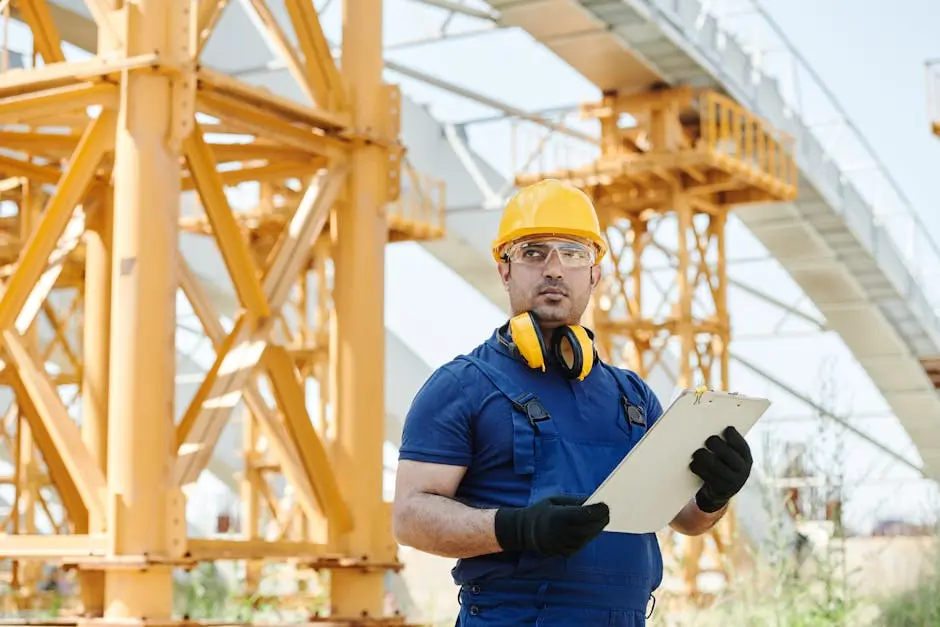When it comes to real estate and property investments, safeguarding your investment is crucial. A fundamental way to ensure that your property remains a solid asset is through regular structural inspections. But what exactly are structural inspections, and why are they so important? In this blog, we’ll explore their vital role in protecting your investment, offering insight into their process and benefits.
Understanding Structural Inspections
Structural inspections are a thorough examination of a property’s foundation, roof, walls, and other critical components. They’re carried out by certified professionals who assess the structural integrity of your building, identifying any potential issues that could compromise its safety or value.
Understanding the scope of a structural inspection helps demystify the process and sets the expectation for homeowners. Essentially, inspectors are detectives of the architecture world, on a mission to uncover the often hidden clues that indicate underlying problems. For instance, a small crack in your wall might seem minor but an experienced inspector can tell whether it’s just cosmetic or a sign of a bigger problem like subsidence. Their expertise ensures every crevice and corner is examined, giving you a comprehensive overview of your property’s health.
The instruments and methods used during a structural inspection can vary. Inspectors often utilize tools such as moisture meters, thermal imaging cameras, and sometimes even drones, to get a detailed understanding of the state of the property. This advanced technology allows inspectors to see beneath the surface and spot issues that might otherwise be overlooked. It’s not just about looking for faults; it’s about understanding the overall condition of the structure and making sure everything is secure and stable.
Why Structural Inspections Are Essential
These inspections play a crucial role in detecting problems early, often before they become visible to the untrained eye. Whether it’s a crack in the foundation or a deteriorating roof, catching these issues early can prevent costly repairs and ensure your property’s longevity.
The importance of conducting structural inspections cannot be understated. They are akin to regular health check-ups for your property, safeguarding it from pitfalls that often result from neglect. Just as you wouldn’t skip a health screening, periodic inspections are essential for preventing structural problems. Think of them as an investment; they provide the tranquility of knowing that your property is sound and any budding issues are promptly addressed.
Moreover, conducting such inspections is not just a matter of safety and immediate ROI. There’s a broader impact on the property market at large. When potential buyers see that a house has a documented history of regular inspections, it instills confidence, which can make the property more attractive. Thus, regular inspections can enhance your property’s appeal, ensuring that it stands out in a competitive market, and potentially commanding a higher resale value.
The Inspection Process Explained
A typical structural inspection involves a detailed walkthrough of the property. Inspectors will evaluate structural elements, searching for signs of wear and tear or damage. They’ll document their findings and offer recommendations for any necessary repairs or maintenance, keeping your investment safe and sound.
During the inspection process, the inspector conducts a thorough evaluation of both the interior and exterior of the property. This includes checking the structural elements such as beams, columns, and the building envelope, which encompasses the roof and walls. They are keen to spot inconsistencies, like uneven floors, which might indicate significant foundational issues that require immediate attention. Each component is meticulously inspected to ensure that the building adheres to local codes and safety standards.
The documentation provided at the end of an inspection is a crucial tool for homeowners. This report not only highlights existing issues but also prioritizes them based on severity, directing homeowners on what needs urgent attention versus what can wait. It also often comes with color-coded schemes or photographic evidence, making it easier for homeowners to understand. This clarity ensures that homeowners can make informed decisions and budget accordingly for repairs and maintenance.
How Inspections Protect Your Investment
By identifying issues early, structural inspections help safeguard your investment by allowing you to address problems before they escalate. This proactive approach not only preserves the property’s value but can also prevent potential safety hazards that might otherwise go unnoticed.
The long-term financial savings are one of the most compelling reasons to conduct regular inspections. While an inspection costs money upfront, it is often far less than the price of major repairs necessitated by unchecked structural damage. For instance, uncovering a small leak before it turns into extensive water damage can save thousands in repair costs. This foresight protects not just the financial aspect of your investment but also the safety and well-being of its occupants.
In summary, inspections serve as a form of insurance for your property investment, ensuring its durability and stability in the long run. It is far better to be aware and prepared than to be blindsided by a storm of repairs and costs. Thus, investing in regular inspections is a pathway to peace of mind, knowing that your property is not just safe but continues to be a source of pride and financial security.
Choosing the Right Inspector
Selecting a qualified inspector is crucial to getting an accurate assessment. Look for professionals with the right credentials, experience, and a solid reputation. This will ensure you receive a comprehensive evaluation that truly protects your investment.
When choosing an inspector, remember that experience speaks volumes. Just as you’d want a seasoned lawyer to handle legal matters, similarly, an inspector with a robust portfolio of inspections brings invaluable insights. They can spot nuances and patterns that less-experienced inspectors might miss, thereby offering a more thorough and reliable evaluation of your property.
Apart from credentials, personal approach and client testimonials provide insight into an inspector’s credibility. Engage with past clients, ask about their experiences, and assess if the inspector communicates findings transparently and effectively. An inspector who can clearly articulate potential issues and solutions is invaluable to your property’s health and your peace of mind. Also, ensure that they stay abreast of industry standards and local building codes, factors that underscore their commitment to quality inspections.
Safeguard Your Investment with Structural Inspections
Incorporating regular structural inspections into your property management routine is a smart move for any savvy investor. Not only do these inspections offer peace of mind, but they also ensure the longevity and safety of your investment. By staying informed and proactive, you can prevent minor issues from becoming major setbacks, saving money and maintaining the value of your property in the long run. For more detailed steps on how to protect your home, visit our homepage.


